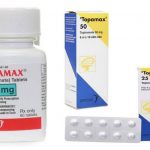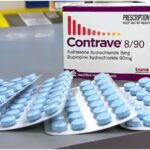Topamax Dosage For Weight Loss and The Best Time to Take It

Does Topamax make you lose weight?
Topamax (topiramate) is an anticonvulsant medication used in the treatment of epilepsy and migraine headaches. Topamax isn’t approved for weight loss. However, it is used off-label for that purpose because it can reduce your appetite, which may lead you to lose weight. In clinical studies, weight loss occurred in 6% to 17% of people who took Topamax. This depended on the dosage and condition treated.
Topiramate the active ingredient in Topamax is one of the drugs in the new weight loss medication called Qsymia, which is a mixture of topiramate and phentermine. This is because topiramate suppresses appetite.
How much Topamax should I take to lose weight?
The recommended starting dose of Topamax for weight loss is a low dose of 25 mg per day, but this dosage strength can be increased on a case-by-case basis based on each individual’s medical history and how much weight they have to lose.
Studies reveal that in the patients taking the lower 50 mg/day dose of topiramate, weight loss occurred in 6% of patients, and in the higher 200 mg/day dose, weight loss was reported in 17% of patients. Anorexia (loss of appetite), which may lead to weight loss, was also seen in 4% and 14% of patients, respectively.
What is the best time to take Topamax for weight loss?
The best time to take Topamax for weight loss is usually in the night with or without food this is because Topamax can make you very drowsy and even dizzy if taken in the morning or during the day. You should avoid driving, using heavy machinery, or doing other tasks that require alertness until you know how this medication affects you. Because it can cause drowsiness, Topamax is best taken at night.
What Should I Avoid While Taking Topamax?
Avoid drinking alcohol or using illegal drugs while you are taking Topamax. They may decrease the benefits (e.g., worsen your symptoms) and increase adverse effects (e.g., sedation, dizziness).
Dangerous side effects or increased seizures may occur. Increased sleepiness or dizziness may occur if you drink alcohol while taking topiramate.
What else should I avoid while taking Topamax?
Avoid getting dehydrated. Drink plenty of fluids when taking Topamax. Also, avoid becoming overheated or dehydrated in hot weather. Topamax can increase body temperature and decrease sweating, leading to life-threatening dehydration (especially in children).
It is also important to drink plenty of fluids when taking Topamax to decrease your chances of getting kidney stones.
Topamax may cause drowsiness, dizziness, blurred vision, or impair your thinking or reactions. Avoid driving or operating machinery until you know how Topamax will affect you.
Avoid the use of a ketogenic or “ketosis” diet (high in fat, low in carbohydrates) while you are taking Topamax.
Also avoid activities that could be dangerous if you have an unexpected seizure, such as swimming or climbing in high places.
Do not stop taking Topamax or change your dose without first talking to your doctor. Stopping suddenly or changing your dose on your own can cause serious health problems and may cause or worsen seizures.
All women of childbearing age should talk to their doctors about using other treatments instead of Topamax. Talk to your doctor before you become pregnant. If you take Topamax during pregnancy, your baby has a higher risk for birth defects called cleft lip and cleft palate. These defects can begin early in pregnancy, even before you know you are pregnant.

How long does it take for Topamax to work for weight loss?
If you are taking Topamax for weight loss, do not expect instant results as it can take two to three months of taking Topamax daily for the full effects of the medication to start manifesting. While some people may start to lose weight in the first month of taking Topamax, others may not notice a difference until they’ve taken the drug for at least four months.
How long is it safe to take Topamax for weight loss?
Generally, many people take Topamax safely for many months or years without long-term side effects. However long-term use of Topamax is linked to an increased risk of kidney stones.
What are the side effects of using Topamax for weight loss?
Whether you are using Topamax for weight loss or as an anticonvulsant, the side effects are the same and can include:
Common side effects
• Thinking problems: slow thoughts, trouble finding the right word, confusion, trouble concentrating
• Feel clumsy, unsteady, dizzy, tired, weak, or nervous
• Loss of appetite, change in the way food tastes, weight loss, stomach pain
• Numbness or tingling sensation in limbs and extremities
Rare/serious side effects
• Mood or behavior changes, such as aggression, agitation, apathy, irritability, and depression
• Hearing problems (ringing, buzzing, and decreased hearing)
• Fever, sore throat, upper respiratory infection
• Itching, nosebleeds, pale skin, blisters, allergy (skin rash, swelling, troubled breathing), yellow eyes or skin, easy bruising, and bleeding
• Topamax may cause eye problems. Serious eye problems include a sudden decrease in vision with or without pain/redness and increased pressure in the eye. These eye problems can lead to permanent vision loss if not treated.
• Serious skin reactions (Stevens-Johnson Syndrome) have been reported with the use of Topamax. At the first sign of a rash, Topamax should be discontinued unless the rash is clearly not drug-related.
• Topamax may cause decreased sweating and increased body temperature. People, especially children, should be watched for signs of this — especially in hot climates. Some people may need to be hospitalized for this condition.
• Topamax can increase the level of acid in your blood (metabolic acidosis). If left untreated, metabolic acidosis can cause brittle or soft bones, kidney stones, can slow the rate of growth in children, and may possibly harm your baby if you are pregnant. Metabolic acidosis can happen with or without symptoms. Sometimes people with metabolic acidosis will feel tired, not feel hungry, feel changes in heartbeat, or have trouble thinking clearly.
• Studies have found that individuals who take antiepileptic medications, including Topamax, have suicidal thoughts or behaviors up to twice as often as individuals who take placebo (inactive medication). These thoughts or behaviors occurred in approximately 1 in 500 patients taking the antiepileptic class of medications.
What drugs can interact with Topamax?
Topamax can cause drug interactions with other medicines and cause side effects. There may be certain medications you should avoid while taking Topamax. Do not start a new prescription or over-the-counter medicine without talking with your healthcare provider first.
Tell your healthcare provider if you take:
- Valproic acid (brand name examples: Depakote). Taking Topamax when you are also taking valproic acid can cause a drop in your body temperature to less than 95 degrees F (35 degrees C), or can cause tiredness, confusion, or coma. Taking these medicines may also cause raised levels of ammonia in your blood.
- Zonisamide (brand name example: Zonegran). Using zonisamide with Topamax can cause metabolic acidosis, a condition that causes high levels of acid in your blood. Combining these medicines may increase the risk and severity of this side effect.
- Glaucoma medications, including eye drops.
- Birth control pills. Topamax may make your birth control pills less effective. Tell your doctor if you experience any breakthrough bleeding (menstrual bleeding changes) if you are taking birth control pills and Topamax. Ask your doctor about using a non-hormonal birth control (condom, diaphragm, cervical cap, or contraceptive sponge) to prevent pregnancy.
- Medicines that impair or decrease your thinking, concentration, or muscle coordination.
Not all possible drug interactions are listed above. This list is not complete and other medicines can affect Topamax. Tell your healthcare provider about all the medicines you take, including prescription and over-the-counter (OTC) medicines, vitamins, and herbal supplements.
Take a list of your medicines to your appointments so your doctor can review for any possible drug interactions. You can also take your medicine bottles (including OTC medications) with you and show them to your doctor if that is easier.





